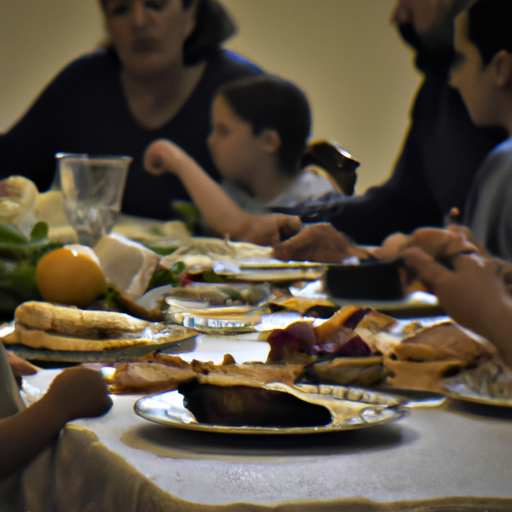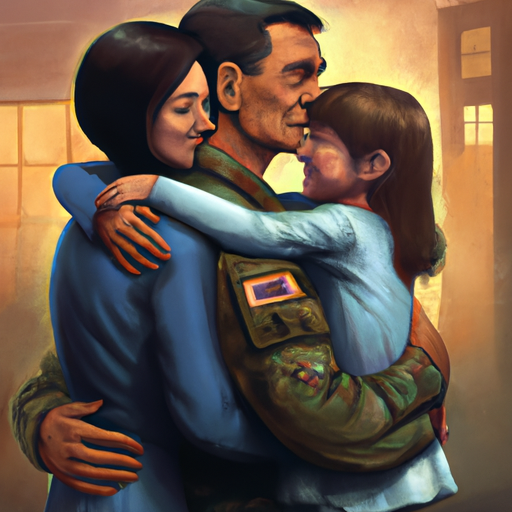This blog post explores the unique aspects of family life and values in Israel, delving into the cultural, religious, and social dynamics that shape Israeli households. It provides an insider’s view of the significance of family in Israeli society, the impact of religious beliefs on family values, the influence of military service on family dynamics, and the role of education in shaping societal norms.
1. ‘Family is not an important thing. It’s everything.’ – Exploring the Centrality of Family in Israeli Society
Family lies at the core of Israeli society, embodying a deep-rooted sense of importance and significance that transcends mere familial ties. Through generations, family has served as the cornerstone of Israeli culture, shaping values, traditions, and identity. The concept of family extends beyond immediate relatives to include a broader network of grandparents, aunts, uncles, and cousins, forming a tight-knit support system that provides emotional, social, and financial stability.
Within the Israeli context, the family unit is revered for its ability to foster a sense of belonging, continuity, and heritage. From the early stages of childhood, individuals are instilled with a strong sense of familial pride and responsibility, emphasizing the importance of honoring and respecting one’s elders. This emphasis on family cohesion is reflected in various aspects of Israeli life, from communal celebrations and rituals to everyday interactions that prioritize family connections above all else.
Moreover, the centrality of family in Israeli society is underlined by the collective approach to decision-making and problem-solving. Major life events, such as marriage, childbirth, and career choices, are often subject to family input and approval, highlighting the consultative nature of family relationships. This collaborative dynamic not only reinforces the bonds between family members but also serves to solidify the sense of unity and collective responsibility that characterizes Israeli society.

1. A family gathered around the dining table for a traditional Shabbat meal, signifying the importance of family in Israeli culture
2. How do Religious Beliefs Shape Family Values in Israel?
Religious beliefs hold a significant influence over family values in Israel, shaping the way individuals perceive and uphold family relationships. Within the diverse religious landscape of the country, Judaism plays a central role in dictating norms, customs, and practices that guide family interactions. This impact can be observed through various lenses, each reflecting a distinct aspect of how religious beliefs intertwine with family values.
- 1. **Traditional Roles and Responsibilities**:
In traditional Jewish households, religious beliefs often dictate distinct roles and responsibilities for family members based on gender and age. These roles are deeply rooted in religious texts and teachings, emphasizing the importance of honoring parents, maintaining family unity, and upholding moral values. The concept of “Shalom Bayit,” or peace in the home, is central to Jewish family life, promoting harmony and mutual respect among family members. - 2. **Celebration of Festivals and Rituals**:
Religious beliefs in Israel also shape family values through the celebration of religious festivals and observance of rituals. These occasions serve as opportunities for families to come together, strengthen bonds, and pass down traditions from generation to generation. Holidays such as Passover, Hanukkah, and Shabbat hold special significance in Jewish families, providing a sense of continuity and connection to shared religious heritage.
3. ‘What doesn’t kill you makes you stronger.’ – The Impact of Mandatory Military Service on Israeli Family Dynamics
Mandatory military service is a fundamental aspect of Israeli society, deeply embedded in the national ethos and shaping family dynamics in profound ways. The requirement for both men and women to serve in the Israel Defense Forces (IDF) creates a unique bond among family members, as the shared experience of military service fosters resilience, unity, and a strong sense of patriotism. The saying, “What doesn’t kill you makes you stronger,” resonates within Israeli families who navigate the challenges and sacrifices that come with military duty.
The impact of mandatory military service extends beyond the individual serving in the IDF, influencing the entire family unit. Parents often experience a mix of pride and anxiety as they see their children enlist, knowing the risks involved but also recognizing the importance of national service. Siblings may also be affected, feeling a sense of responsibility to support their brothers or sisters in uniform and coping with the emotional toll of potential danger.

3. An image of a young man in military uniform hugging his family goodbye, illustrating the impact of mandatory military service on family dynamics
4. Education in Israel: A Tool for Social Norms or a Platform for Change?
Education in Israel plays a dual role, serving both as a tool for reinforcing social norms and as a platform for driving meaningful change within society. The educational system in Israel reflects the diverse cultural, religious, and ethnic fabric of the country, aiming to instill values of tolerance, coexistence, and national identity among its students. Schools often serve as a microcosm of Israeli society, where children from different backgrounds come together to learn and grow, contributing to the rich tapestry of the nation.
At the same time, education in Israel has been a catalyst for progressive movements and social change. Schools and universities have been at the forefront of advocating for equality, diversity, and inclusion, challenging traditional norms and pushing for a more open and inclusive society. By promoting critical thinking, creativity, and civic engagement, the Israeli education system empowers the younger generation to question existing structures and envision a more equitable future for all.
In conclusion, family life and values in Israel are deeply rooted in the country’s history, culture, and religious beliefs. Despite the challenges posed by mandatory military service and the constant threat of conflict, the Israeli society remains resilient, with family ties playing a vital role in this resilience. Education, respect for tradition, and an unwavering commitment to family values continue to shape the unique social fabric of Israel.
